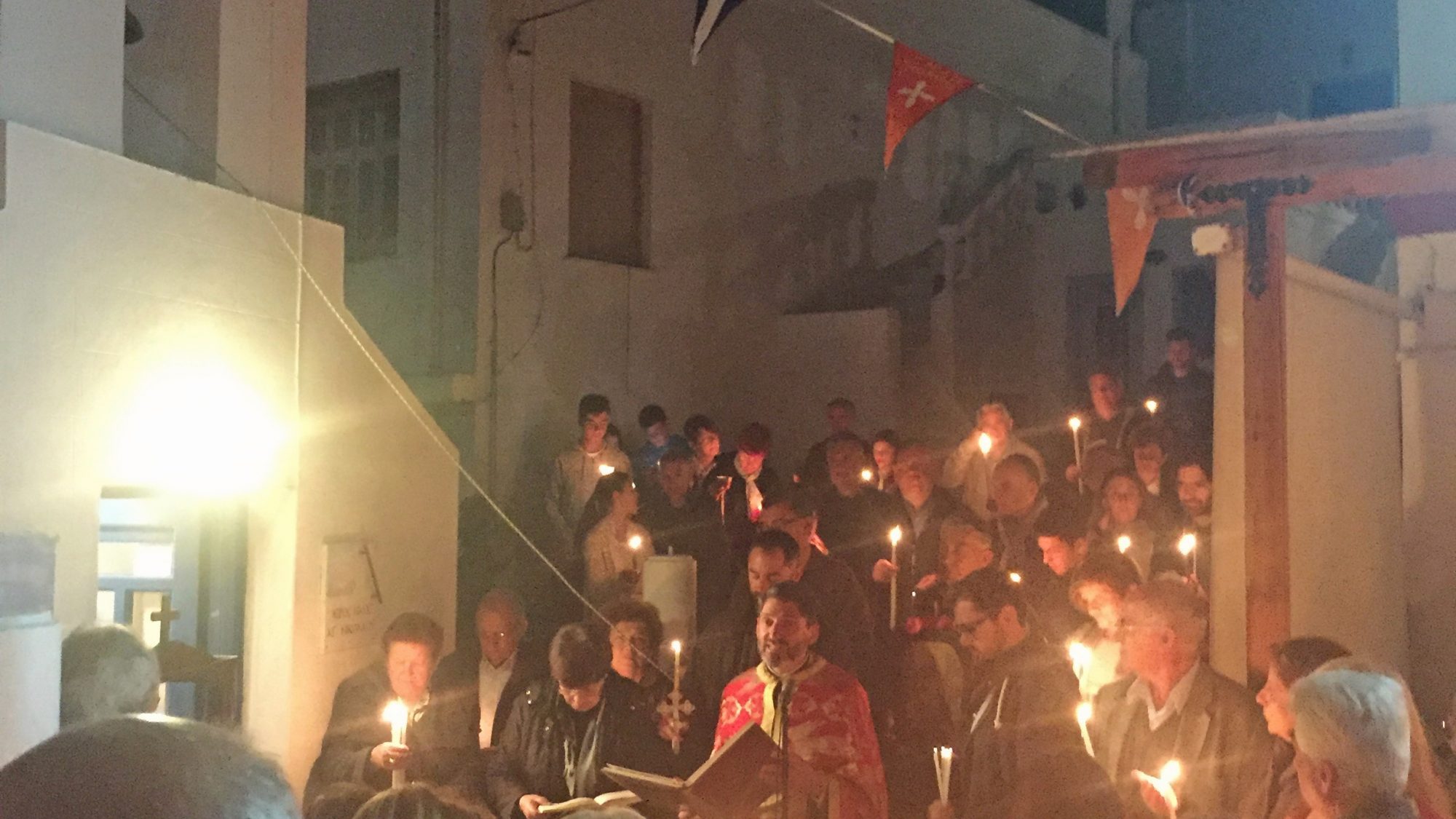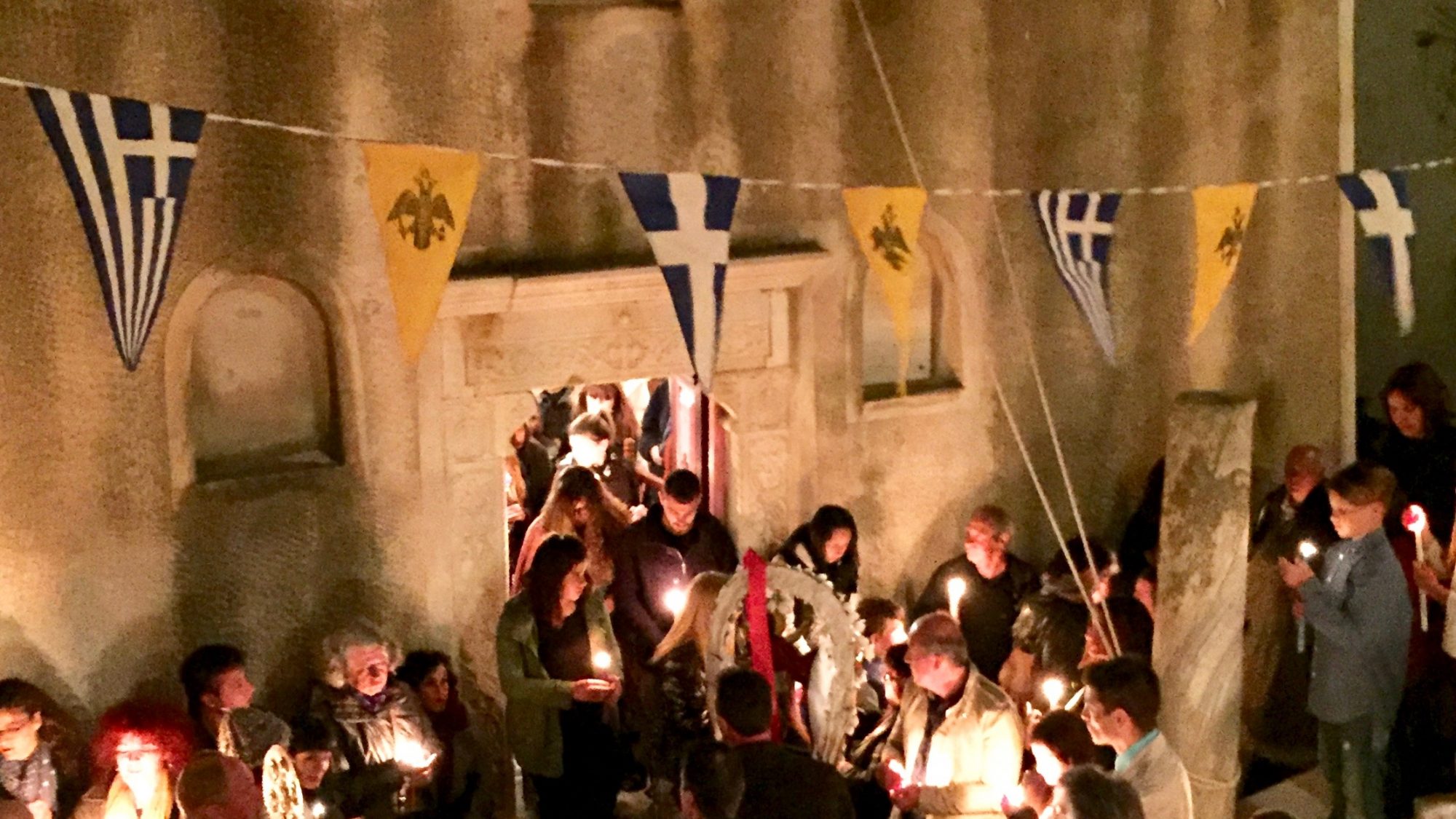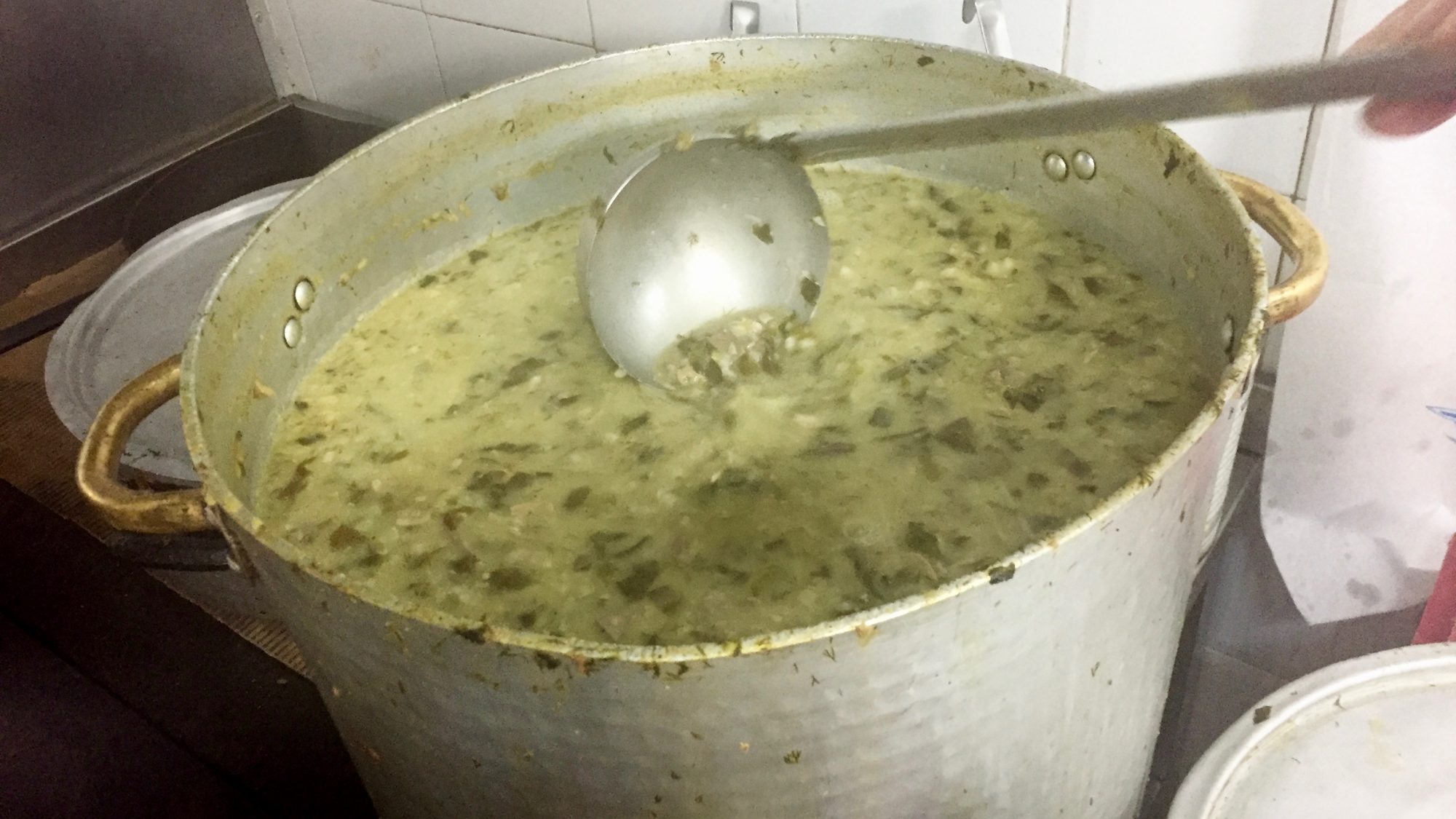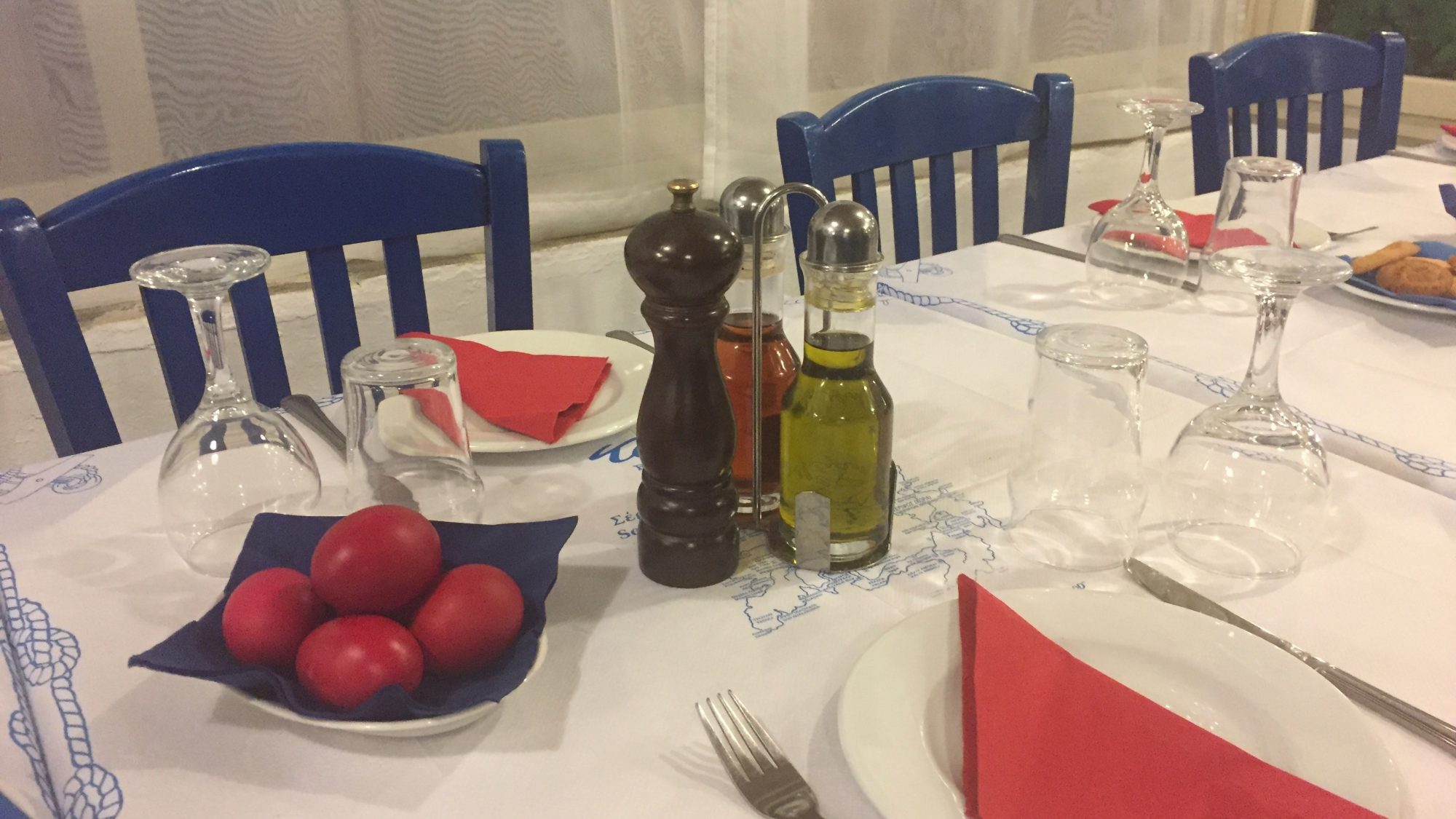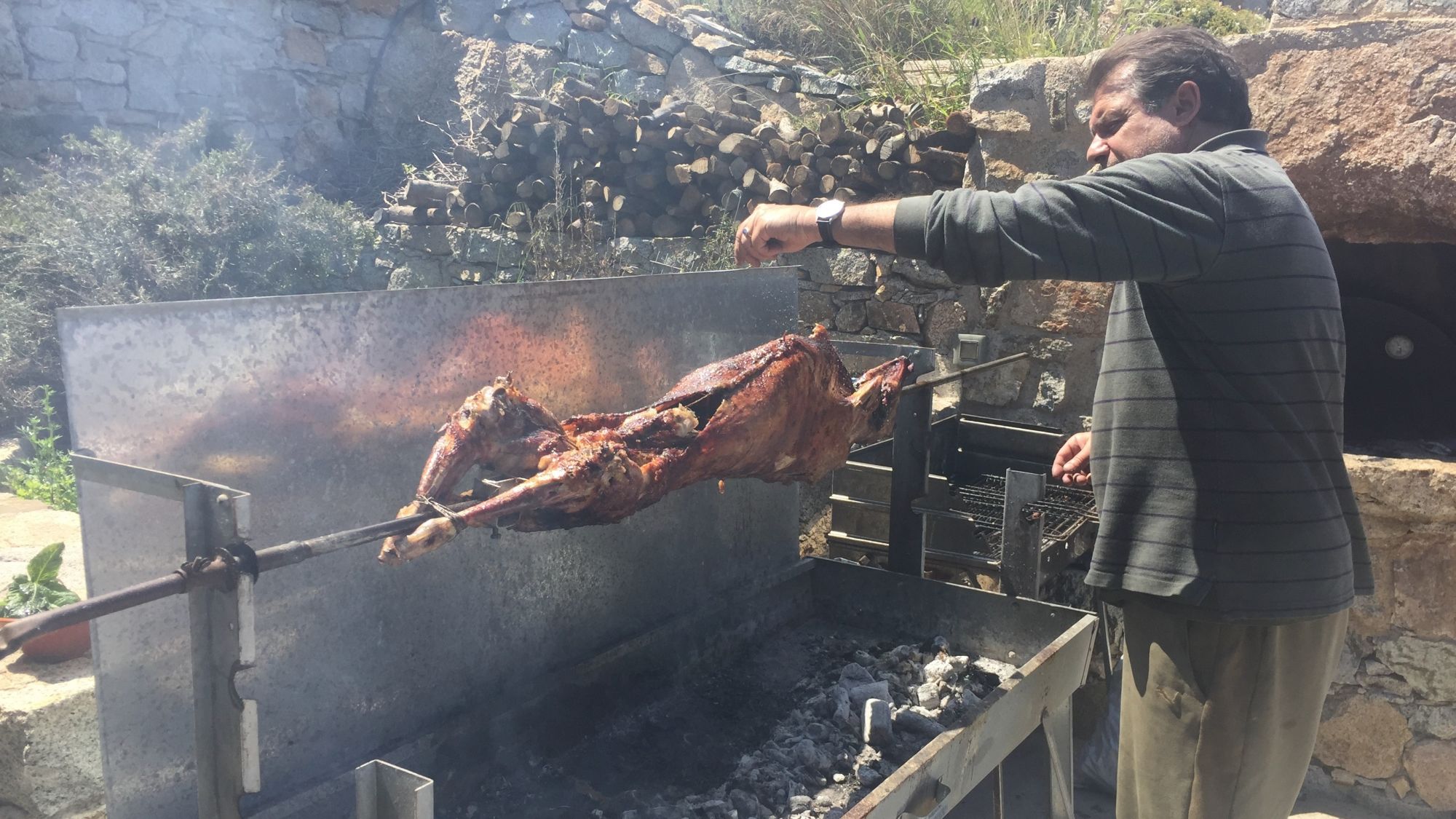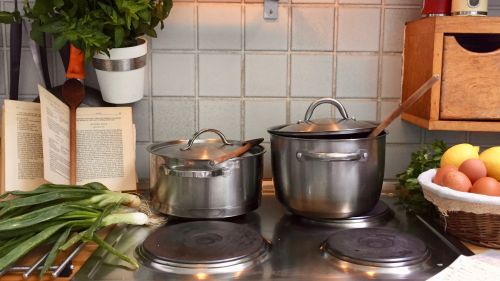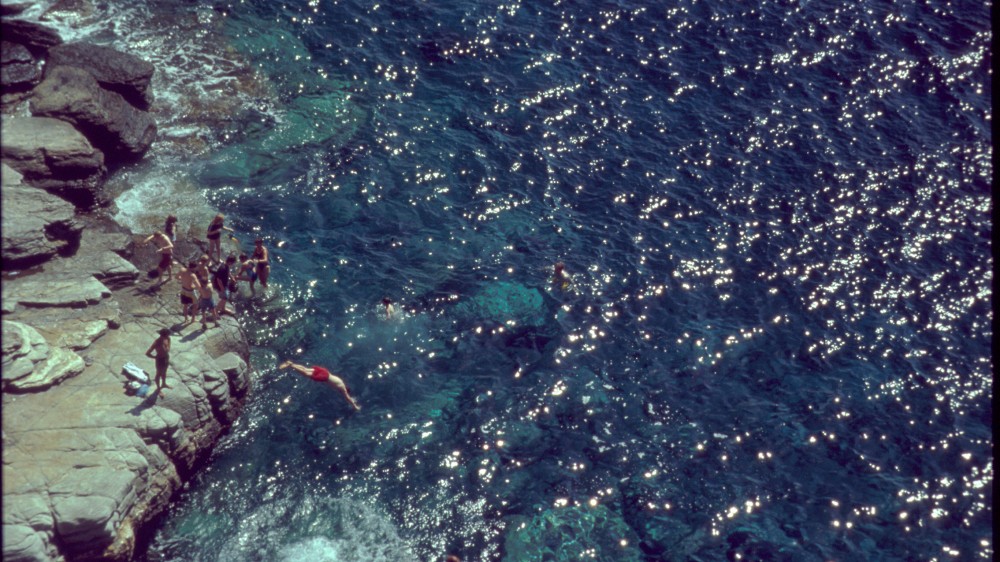My Big Fat Greek Easter
Pretty much every Greek observes the rules on Clean Monday, the first day of Lent, when families get together, fly kites and picnic on lagana bread, taramosalata, fava, baked beans, calamari, green salad, pickled veggies, and ever-so-sweet halvas for desert. The next day, it’s back to normal for most, with the exception of the extraordinary devout who continue to fast for the next 40 days and a few more, who do so for fashionable health reasons. It is supposed to be cleansing your body after all.
Fast forward (pun unintended) to Good Friday, and all of a sudden, everyone is fasting again – pretending the 39 days of illicit meat and cheese eating that came in between never happened. And after all that body cleansing, and the (sad but beautiful) epitaph processions on the evening of Good Friday, the country gets ready for the resurrection celebrations on Saturday night. With equal amounts of enthusiasm, believers and non-believers head to church clutching candles which are to be lit only after the priest announces that Christ has risen and his holy light is passed on from candle to candle. “Christ has risen” answered by “Indeed the Lord has” is the message that is passed along with the flame. Kisses, hugs and chronia polla (literally “many years” – many happy returns) wishes follow.
It is all supposed to take place at midnight, though in places where there are fewer priests than churches, Christ can rise as often as three or four times during that one single night. That’s exactly what happens on the little island where I usually go for Greek Easter; two priests break the speed limits to make it from one church to the next, to eventually join the monk just before midnight at the island’s monastery for the grand finale.
While priests and monks continue their chanting for a good part of the night, everybody else heads home or to the taverna for a late supper of red Easter eggs and mayieritsa soup, which is meant to prepare the stomach for the meat-eating orgy that will take place the next day. Maye-what? Yah… Let me explain. To be continued…
